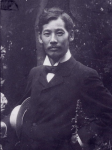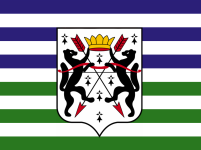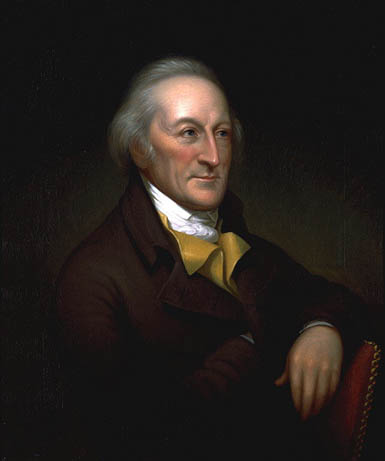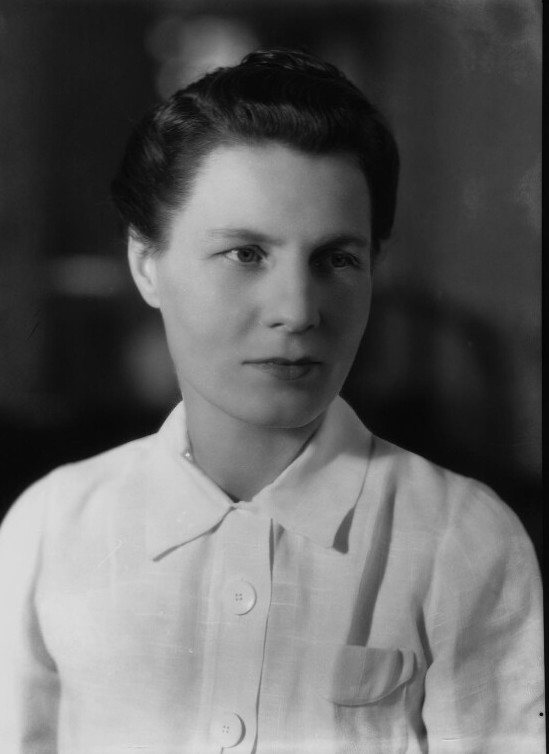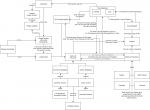- Location
- Op een dag, Nederland.
- Pronouns
- she/her & ne/nem
"Gang Aft Agley"
Prime Ministers of Scotland (2021-2024)
Nicola Sturgeon (SNP majority) 2021-2022
Damn Cherry. Damn everyone who won't damn Cherry. That woman managed to bind the SNP to unilateral independence in their November conference and then rushed the Parliament to vote for it. By a narrow one-seat margin, Scotland declared independence. Sturgeon was now the first head of government of an independent Scotland in centuries. But what should have been a triumphant declaration was now some rushed and probably illegal thing. And now Boris declared that he wouldn't stand for it and was now putting what remained of Britain's clout on isolating its unwelcome neighbour.
Any poll that would have been held about independence would have seen YES fall back below 50% after that. The gradualists lost the fight so comprehensively and Sturgeon herself lost control of the party. The leadership challenge was almost an afterthought.
Joanna Cherry (SNP majority) 2022-2024
The triumph of the fundamentalists in March 2022 came with more and more blows. An application to even consider joining the EU was rejected frostily, and President Biden refused to even meet the Scottish ambassador. Sure, there was some 'informal' acceptance here and there, including China. But none of it helped the Scottish economy, which was now collapsing like there was no tomorrow. Many economists attributed it to its historic dependence on the south, and the most charitable would say that this was a 'rough transitionary period'.
But for the average Scot, it was a nightmare as more and more jobs fled southwards. Boris, now successfully covering himself as 'defender of the Union' with his tough diplomatic talk, declared that there was 'no compromise on the Union', and even though Starmer adopted a more conciliatory tone, he was still firm that UDI was illegal and opposed by Labour. The diplomatic isolation was without end in sight. And out of a desperate move, Cherry signed more and more deals with China, giving them overt influence over the country. This did get Scotland more diplomatic recognition, but only outside the West.
As jobs vanished and poverty rose, including Covid-22 tearing apart the country in sickness worse than the UK in 2023, the people of Scotland turned angrier and against the SNP which promised such a rosy vision of independence and yet gave Scotland hell. In 2024, this would come to a boil.
Colin Fox (Scottish Socialist leading Revolutionary Government) 2024
They said it couldn't be done, that workers' revolutions didn't happen in this day and age. But Red Clydeside was back once more. With the SNP and Scottish Parliament successfully marginalised by a workers' uprising, Colin Fox declared the formation of the Republic of Scotland.
Prime Ministers of the Republic of Scotland (2024-????)
Colin Fox (Scottish Socialist leading Revolutionary Coalition) 2024-2026
2024: def.Ruth Davidson (Progressive Unionist), Nicola Sturgeon (SNP), Alex Salmond [in exile] ("Provisional" SNP), Patrick Harvie (Green)
Despite a stronger Unionist support than expected [one easily dealt with by a bill passed the first day expelling all members not supporting Scottish "national integrity"], Fox got his majority in the new People's Convention, and immediately moved with his policies. While many of them would see leftists down south start to agitate more for recognition of Scottish independence and saying that some of his stuff could be learnt from, it would cause their increasing marginalisation in British politics between a seemingly-dominant Conservative Party and a Labour Party anxious to not be associated with Scots.
Left unsaid was that Fox was in an unenviable position. The economy was still collapsing with no end in sight, and the only way he could solve it was by opening up further and further to China and other countries. Which would reduce Scotland to a mere economic puppet. In the end, he chose to put Scottish workers first and move away from those, instead prioritising a state-ran economy. This would see quite a bit of success at first.
But China, scorned by this move against any foreign economic influence, deemed that it was not worth the effort and declared that it 'respects the territorial integrity of the United Kingdom, as we hope the United Kingdom returns in turn'. The Chinese money left, leading to a panic and thousands of jobs lost in the blink of an eye. Christmas 2025 was the most miserable yet. Fox held firm and declared that "Scottish Socialism" would get the country out of the mess. But then he was thrown out by his own Convention in favour of a name that people thought was over.
Tommy Sheridan (Solidarity leading Revolutionary Coalition) 2026-????
2029: unopposed [SNP, Provisional SNP denied the ballot, Unionists forced to go underground]
A key element of the second rise of Tommy Sheridan was that he was part of a much more cynical streak emerging in Scottish radical left circles. One that believed that the world was against Scotland and that only Scotland could look after Scotland. A much more isolationist, insular viewpoint, but one much more open to autarkic ideas. But above all, the thing that defined Sheridan's government was its unrepentant hostility to criticism.
The press were heavily curtailed and opposition parties were consistently portrayed as suspiciously disloyal to Scotland by the Prime Minister. The main target of his attacks were the broad-tent Progressive Unionists. Being the child of the merger of the Labour, Conservative and Liberal Democrat parties and representing a broad "rejoin" attitude, it represented everything wrong with Scottish politics in his eyes. So to see that they were denied the ballot was unsurprising, especially as Sheridan centralised that to under his government's control.
But what was more surprising was that the two halves of the SNP, the official and provisional elements, were also denied it. The 2029 election returned a bunch of yes-men and yes-women [no yes-enbies though] and his control over Scotland cemented itself. Helping this was that finally the broken Scotland economy could start to rebuild itself. All jobs that could be lost were now lost, and Sheridan could continue Fox's project of "Scottish Socialist" state-controlled autarky. An uniquely-Scottish attempt at a command economy was now in full steam.
Meanwhile, Scotland's diplomatic isolation continued as Boris Johnson was followed by Priti Patel who promised to be every bit as tough - "if not more" - on the Scottish Question. By the time Sheridan drove opposition out of the convention, only the far-left in the UK backed Scotland. Labour was now fully committed to what was then a growing sense of British nationalism, built out of an instinctive reaction to what Scotland was. Everything Scotland was, Britain was the opposite. If Scotland is insular and closed, Britain is open to the world. If Scotland is state-controlled, Britain is for the free market. If Scotland is anti-European, well, let just say that Britain is now in the EEC again, but it says it's not. It's merely the UK-EU Coordinated Trade Market, which is totally not the EEC believe us.
The year is 2031 and the red sun rises above the grim brilliance of Tommy Sheridan's Socialist Republic. He is still in full grip of Scotland, but he is fully expected to hand over to his deputy Pat Lee in the coming year, yet still be greatly influential. Alex Salmond is still banned from returning to Scotland and is seen most of the time in Moscow. Joanna Cherry is still unrepentant about her pushing for unilateral independence, but is otherwise shunned by most people, even middle-class TERFs in the UK. And Nicola Sturgeon haven't been sighted for three years.
Prime Ministers of Scotland (2021-2024)
Nicola Sturgeon (SNP majority) 2021-2022
Damn Cherry. Damn everyone who won't damn Cherry. That woman managed to bind the SNP to unilateral independence in their November conference and then rushed the Parliament to vote for it. By a narrow one-seat margin, Scotland declared independence. Sturgeon was now the first head of government of an independent Scotland in centuries. But what should have been a triumphant declaration was now some rushed and probably illegal thing. And now Boris declared that he wouldn't stand for it and was now putting what remained of Britain's clout on isolating its unwelcome neighbour.
Any poll that would have been held about independence would have seen YES fall back below 50% after that. The gradualists lost the fight so comprehensively and Sturgeon herself lost control of the party. The leadership challenge was almost an afterthought.
Joanna Cherry (SNP majority) 2022-2024
The triumph of the fundamentalists in March 2022 came with more and more blows. An application to even consider joining the EU was rejected frostily, and President Biden refused to even meet the Scottish ambassador. Sure, there was some 'informal' acceptance here and there, including China. But none of it helped the Scottish economy, which was now collapsing like there was no tomorrow. Many economists attributed it to its historic dependence on the south, and the most charitable would say that this was a 'rough transitionary period'.
But for the average Scot, it was a nightmare as more and more jobs fled southwards. Boris, now successfully covering himself as 'defender of the Union' with his tough diplomatic talk, declared that there was 'no compromise on the Union', and even though Starmer adopted a more conciliatory tone, he was still firm that UDI was illegal and opposed by Labour. The diplomatic isolation was without end in sight. And out of a desperate move, Cherry signed more and more deals with China, giving them overt influence over the country. This did get Scotland more diplomatic recognition, but only outside the West.
As jobs vanished and poverty rose, including Covid-22 tearing apart the country in sickness worse than the UK in 2023, the people of Scotland turned angrier and against the SNP which promised such a rosy vision of independence and yet gave Scotland hell. In 2024, this would come to a boil.
Colin Fox (Scottish Socialist leading Revolutionary Government) 2024
They said it couldn't be done, that workers' revolutions didn't happen in this day and age. But Red Clydeside was back once more. With the SNP and Scottish Parliament successfully marginalised by a workers' uprising, Colin Fox declared the formation of the Republic of Scotland.
Prime Ministers of the Republic of Scotland (2024-????)
Colin Fox (Scottish Socialist leading Revolutionary Coalition) 2024-2026
2024: def.
Despite a stronger Unionist support than expected [one easily dealt with by a bill passed the first day expelling all members not supporting Scottish "national integrity"], Fox got his majority in the new People's Convention, and immediately moved with his policies. While many of them would see leftists down south start to agitate more for recognition of Scottish independence and saying that some of his stuff could be learnt from, it would cause their increasing marginalisation in British politics between a seemingly-dominant Conservative Party and a Labour Party anxious to not be associated with Scots.
Left unsaid was that Fox was in an unenviable position. The economy was still collapsing with no end in sight, and the only way he could solve it was by opening up further and further to China and other countries. Which would reduce Scotland to a mere economic puppet. In the end, he chose to put Scottish workers first and move away from those, instead prioritising a state-ran economy. This would see quite a bit of success at first.
But China, scorned by this move against any foreign economic influence, deemed that it was not worth the effort and declared that it 'respects the territorial integrity of the United Kingdom, as we hope the United Kingdom returns in turn'. The Chinese money left, leading to a panic and thousands of jobs lost in the blink of an eye. Christmas 2025 was the most miserable yet. Fox held firm and declared that "Scottish Socialism" would get the country out of the mess. But then he was thrown out by his own Convention in favour of a name that people thought was over.
Tommy Sheridan (Solidarity leading Revolutionary Coalition) 2026-????
2029: unopposed [SNP, Provisional SNP denied the ballot, Unionists forced to go underground]
A key element of the second rise of Tommy Sheridan was that he was part of a much more cynical streak emerging in Scottish radical left circles. One that believed that the world was against Scotland and that only Scotland could look after Scotland. A much more isolationist, insular viewpoint, but one much more open to autarkic ideas. But above all, the thing that defined Sheridan's government was its unrepentant hostility to criticism.
The press were heavily curtailed and opposition parties were consistently portrayed as suspiciously disloyal to Scotland by the Prime Minister. The main target of his attacks were the broad-tent Progressive Unionists. Being the child of the merger of the Labour, Conservative and Liberal Democrat parties and representing a broad "rejoin" attitude, it represented everything wrong with Scottish politics in his eyes. So to see that they were denied the ballot was unsurprising, especially as Sheridan centralised that to under his government's control.
But what was more surprising was that the two halves of the SNP, the official and provisional elements, were also denied it. The 2029 election returned a bunch of yes-men and yes-women [no yes-enbies though] and his control over Scotland cemented itself. Helping this was that finally the broken Scotland economy could start to rebuild itself. All jobs that could be lost were now lost, and Sheridan could continue Fox's project of "Scottish Socialist" state-controlled autarky. An uniquely-Scottish attempt at a command economy was now in full steam.
Meanwhile, Scotland's diplomatic isolation continued as Boris Johnson was followed by Priti Patel who promised to be every bit as tough - "if not more" - on the Scottish Question. By the time Sheridan drove opposition out of the convention, only the far-left in the UK backed Scotland. Labour was now fully committed to what was then a growing sense of British nationalism, built out of an instinctive reaction to what Scotland was. Everything Scotland was, Britain was the opposite. If Scotland is insular and closed, Britain is open to the world. If Scotland is state-controlled, Britain is for the free market. If Scotland is anti-European, well, let just say that Britain is now in the EEC again, but it says it's not. It's merely the UK-EU Coordinated Trade Market, which is totally not the EEC believe us.
The year is 2031 and the red sun rises above the grim brilliance of Tommy Sheridan's Socialist Republic. He is still in full grip of Scotland, but he is fully expected to hand over to his deputy Pat Lee in the coming year, yet still be greatly influential. Alex Salmond is still banned from returning to Scotland and is seen most of the time in Moscow. Joanna Cherry is still unrepentant about her pushing for unilateral independence, but is otherwise shunned by most people, even middle-class TERFs in the UK. And Nicola Sturgeon haven't been sighted for three years.




